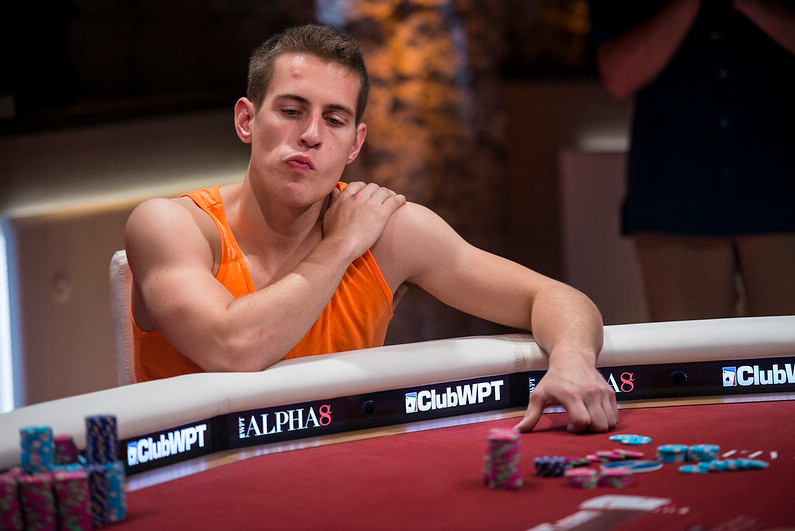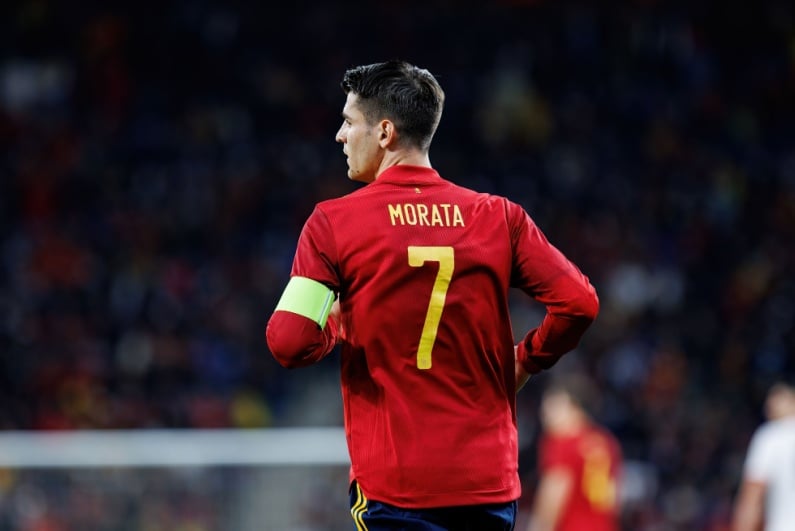Chan’s tweetstorm
PokerShares and its owner Mike “Timex” McDonald were in the news last week after popular pro and DAT Poker podcast host Terrence Chan took to Twitter to say: “I’m going to call out PokerShares and MikeMcDonald89, a site and a person I’ve been a fan of.”
According to Chan, as he details in the above thread, he was browsing Twitter when he thought he spotted a posting from PokerShares that looked like it offered a wager with positive expected value, namely an almost even money line (1.92) in the upcoming challenge between Bill Perkins and Landon Tice. He fired a max bet on Landon. The line didn’t move so he fired again. And again.
What is the Tice/Perkins challenge?
Landon Tice is a 21-year-old poker pro from Florida, considered by many to be one of the best up-and-coming players in the game. A protégé of Joey Ingram and Matt Berkey, the young gun has been steadily ascending the cash game stakes and to date has $227,896 in live tournament winnings.
Bill Perkins is a 52-year-old hedge fund manager and recreational poker player from Texas. He is a regular on the high-stakes cash game circuit, with $5,449,472 in career live tournament winnings.
The pair have agreed to play $200/$400 online, the same stakes as Negreanu and Polk, over 20,000 hands. There is one caveat, however, and this is significant to the Chan/McDonald story. Tice must pay Perkins nine big blinds per 100 hands. Assuming the match goes the full 20,000 hands, that’s a whopping $720,000 handicap.
Pokershares clarifies the bet
As it pertains to the Chan/PokerShares bet, there was no mention of the specific handicap. It did, however, use the word “challenge”, implying the terms of the challenge. Ambiguity is the devil’s volleyball.
the price on the match included the $720,000 handicap
Later that day, PokerShares support emailed Chan to enforce its $1,000 max bet rule, canceling his other two tickets. Cut to a few hours later, and Chan received an email from PokerShares clarifying the market: the price on the match included the $720,000 handicap. Tice would need to win more than $720,000 to be graded as the winner.
“Should you have placed your bet without understanding the above, you have 24 hours to cancel the bet by responding to this email,” the site wrote.
Things get personal
Almost immediately after the email correspondence, Chan got a private message from PokerShares owner Mike McDonald. A conversation ensued, beginning with the first words: “Are you dumb?”
The tone of that message aside, it is clear that the wording of the bet was ambiguous on the PokerShares site, and that Chan interpreted the bet as a straight-up outcome rather than handicap-adjusted. These things happen in sports betting all the time, and bookmakers are well within their rights to void bets.
If they make a mistake like this, should they just eat it?
Chan’s argument, however, is should they? Making the point that PokerShares is in the business of putting up -EV bets for bettors, is it so bad if they take the worst of it on occasion? If they make a mistake like this, should they just eat it? As Chan himself said, doing so could be spun as a piece of positive marketing.
The poker public weighed in on both sides of the debate, but it was clear that McDonald was keen to make a point about PokerShares and how they do business, drawing a clear line in the sand for all to see. In fact, he went so far as to impugn Chan’s motives, culminating in a tweet saying: “If I’m ever caught as a liar/scammer I plan to take a nice break from the public eye to focus on my parenting and philanthropy.”
This was a reference to Chan who, stressed out from all the responses, turned his phone off, explaining that he was minding his daughter. Chan posted a $1,000 donation that he made to the Hong Kong humanitarian relief fund. He said: “I’ll admit I’ve made mistakes and said some things I shouldn’t have said […] I’m still absolutely grossed out people are saying I angled, but defending myself is costing me more emotional energy than I have, so I’m letting this one go and imposing a temporary self Twitter ban.”
The takeaway
In the days since, the argument has died down. As is the nature of poker Twitter, there is always a new shiny object to chase, another piece of gossip or scandal on which to opine.
Top pro and respected poker community member Olivier Busquet reflected on the dispute, saying that McDonald and Chan are two of the most trustworthy people in the poker world. He added that they are “almost compulsively ethical” because they are sticklers for the rules. As such, they viewed different interpretations of the rules as a lack of ethics from the other. Ego and social media then contributed to an escalation of tensions.
“Should immediately be squashed and would be imo if it was in person,” Busquet said. “So many genuine angle-shooters/scumbags in poker – what a waste of time and energy,” he added.
It is certainly best to move past this sad and unfortunate debacle, but the specter of Chan’s ultimate question lingers. Betting sites are certainly within their rights to act as PokerShares did, but should they?




